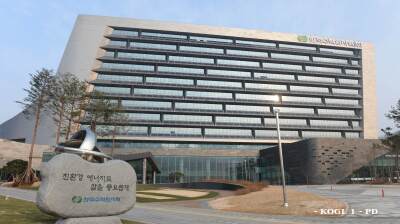Sibur, one of the world’s largest petrochemical companies, has set more ambitious ESG targets over the next five years, including in recycling, low-carbon products and energy use.
“In 2019, Sibur became one of the first Russian companies to adopt a sustainable development strategy,” said Dmitry Konov, chairman of the management board of Sibur. “In two years, we have gone through a serious ESG transformation and saw that the strategy must be updated to meet the challenges of a dynamically changing environment. The updated document reflects our ambitions in the field of decarbonisation and the development of a circular economy.”
The Moscow-based company has been a partner and a driver in Russia’s moves to organise and roll out wider recycling practices. It additionally uses associated gases from oil production sites in its manufacturing process. These products would otherwise be flared off into the atmosphere.
The new plan comes as Sibur is undergoing a massive transformation. In September, it closed a deal to take over its Tatarstan, Russia-based rival TAIF in an equity swap. Additionally, it ramped up polymer output from the new “ZapSib” plant in Siberia this year. The combination created the fifth-largest producers of polyolefin and rubber products globally.
And Sibur’s growth will not stop there as it pushes ahead with another petrochemicals plant in Russia’s far eastern Amur region.
The updated plan seeks carbon neutrality in at least one Sibur enterprise by 2025. The group will boost renewable energy use, capturing, utilising and storing carbon dioxide and sequestration projects.
The Russian petrochemical giant plans to increase the amount of “green” energy in the company’s energy balance five times by 2025. The calculations also consider the company’s launch of its solar power plant in Anapa.
The newly enlarged company has now set specific figures on recycling targets. Sibur, directly and via partnerships, intends to play a part in recycling at least 100 kilotonnes of polymer waste annually in 2025.
The key driver will be the production of green PET granules – Vivilen rPET – containing recycled materials to be launched at the POLIEF site in Blagoveshchensk in 2022.
Sibur plans to make at least 250 kt of low-carbon products and those containing recycled or bio feedstock annually by 2030. By the same date the group seeks to manufacture at least 250,000 low-carbon products annually containing secondary or bio-raw materials.
Sibur’s HR management and social activities are to be merged into a comprehensive diversity and inclusiveness programme by integrating the principles of diversity and inclusiveness into the company’s key by-laws and corporate practices.
Sibur’s updated ESG goals are a welcome accompaniment to its massive growth. This is all the more notable in Russia, where generous regulatory practicalities in a massive natural resources-based economy can allow corporates to lag in progressive agendas. The higher standard seems realistic and will provide a solid platform for further upgrades.
-
This article first appeared in New Economy Observer (NEO), a digital publication covering the intersection between finance and social responsibility, with a special focus on emerging markets. It offers news and analysis on major issues shaping the new global economy, including climate change and renewable energy, sustainable development, e-commerce and tech innovation, and the future of work.
bneGREEN

Global renewables to double by 2030, but IEA warns momentum must accelerate
Global renewable energy capacity is on course to double by 2030, reaching 4,600 GW—comparable to the current combined total of China, the European Union and Japan—according to the International Energy Agency’s Renewables 2025 report.

South Korea’s embrace of SMRs as a pillar of nuclear policy
Spearheaded by Korea Hydro & Nuclear Power, these compact reactors are increasingly being seen as central to the nation's energy policy, offering flexibility, scalability, and ultimately a pathway to carbon neutrality

China leads global energy export race as clean tech shipments hit record highs
China is outpacing the US in the global race to dominate energy exports, as demand for clean technology surges and fossil fuel revenues plateau. China exported $120bn in green technology through July 2025, surpassing the US' oil and gas exports.

Philippines sets out policy framework for first nuclear power plant
The initiative marks a significant step in reviving the Philippines’ long-dormant nuclear ambitions. Following the 1973 oil crisis, the country constructed the 621 MWe Bataan Nuclear Power Plant in 1984 at a cost of $460mn – around $1.4bn today.
_Cropped_1759915420.jpg)



